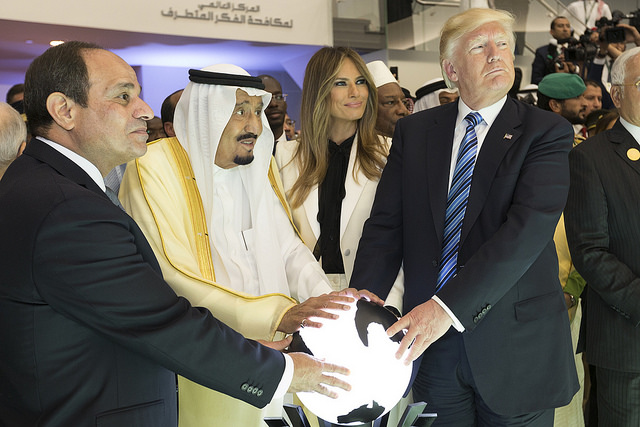Midterm results won’t change America’s Middle East policy

President Donald Trump’s party lost control of the US House of Representatives in midterm elections held last week. However, that probably won’t have any effect on the general trajectory of Washington’s policy on the Middle East. The US Senate—the legislative arm that’s more likely to influence foreign policy—remains firmly under Republican control. More important, Trump and his closest foreign policy advisers on the Middle East, son-in-law Jared Kushner and National Security Advisor John Bolton, will continue to determine Washington’s posture on the most important issues affecting the volatile region.
Trump has played to the Israeli gallery by shifting the US embassy to Jerusalem, thus endorsing Israel’s position that the holy city is the indivisible and inalienable capital of the Jewish state. And by withdrawing US funding for the UN’s Palestinian refugee agency, he has validated Israel’s view that the descendants of Palestinian refugees have no ‘right of return’ to homes their forefathers were expelled from in 1948. This was not merely a financial move; it was above all a political declaration that the US no longer recognises the refugee issue as integral to the resolution of the Israel–Palestine conflict.
Israeli Prime Minister Benjamin Netanyahu has returned the favour by absolving Trump of all responsibility in the horrendous shooting at a Pittsburgh synagogue that left 11 worshippers dead. He did so despite the fact that mainstream US Jewish opinion points to Trump’s anti-immigrant rhetoric and his coddling of extreme-right white supremacists as having created the atmosphere that led to the Pittsburgh massacre. Trump and Netanyahu are ideological soul mates. The administration’s approach to the Israel–Palestine problem isn’t likely to be altered by the midterm elections, especially since pro-Israel sentiments in Congress cut across party lines.
Trump’s hardline attitude towards Iran and the re-imposition of sanctions—especially the ones aimed at curtailing Iran’s capacity to export oil and engage in international financial dealings—are in part related to his desire to appease Israel. The other major reason for the US decision to withdraw from the Iran nuclear deal is related to Trump’s passion for undoing President Barack Obama’s legacy regardless of the negative consequences it generates, especially among European allies who are signatories to the deal.
In addition to demanding that Iran totally give up its desire to enrich uranium, Trump insists that the re-imposed sanctions will remain in place until Tehran renounces its missile development program and stops what he calls its ‘aggressive’ meddling in other countries of the Middle East. Both the Republicans and Democrats are largely united in their determination to punish Iran for its regional actions and to force it to give up its missile development program and its uranium enrichment capacity.
The third aspect of Trump’s antagonism towards Iran is America’s, and especially his, close relationship with Saudi Arabia, which is engaged in a Middle Eastern cold war with Iran that has the potential to turn into armed conflict in the near future. Riyadh’s importance in the Trump administration’s calculations has been most clearly on display in the administration’s refusal to impose any significant measures on the Saudi regime as punishment for the brutal murder of journalist Jamal Khashoggi in the Saudi consulate in Istanbul. That’s despite clear indications that the order to murder Khashoggi came from the highest echelons of the Saudi power structure—and despite bipartisan pressure from leading members of Congress to take punitive action.
There are several factors that explain America’s pro-Saudi posture. Washington considers Saudi Arabia its key surrogate in curbing Iranian influence in the Middle East, especially in the energy-rich Persian Gulf. Its support for Riyadh’s misadventure in Yemen that has killed, maimed and starved innumerable Yemeni civilians is an indication of this fact. The Saudi regime is engaged in fighting the Houthis in Yemen who are supported by Iran.
Moreover, Saudi Arabia is a leading purchaser of American arms and has recently offered to buy US$110 billion worth of sophisticated weaponry. It is also a major investor in the US economy. Above all, it is the world’s top oil exporter and has the largest reserves in the world. It is, therefore, the swing producer of crude and has the ability to affect oil prices in the world market both positively and negatively. Retaining influence in Riyadh is very important for Washington to protect itself from the sort of oil shock that took place in 1973.
The significance of the Democrats’ victory in the House of Representatives will, therefore, be limited primarily to the domestic arena. America’s foreign policy, especially its policy in the Middle East, will remain largely immune to the congressional power shift.